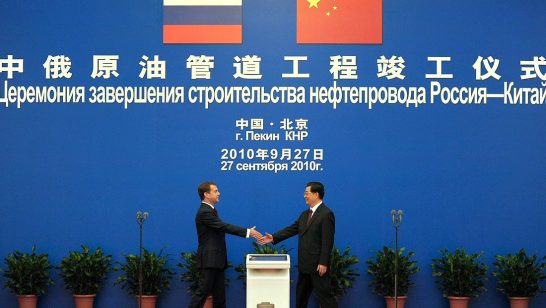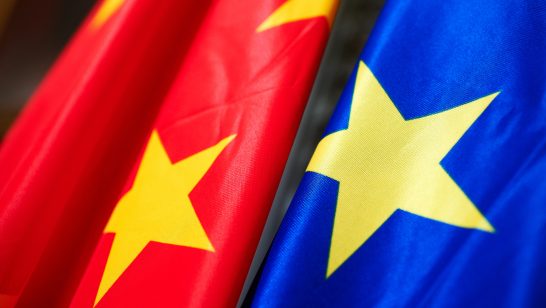
My former colleague Uffe Ellemann-Jensen, Denmark’s longest serving Foreign Minister, once told me that neither China nor the climate were high on the agenda during his tenure. Now, 30-40 years later, China’s importance on the world stage has exploded. Climate change is our worst existential threat, provided we don’t wipe out civilisation in a nuclear war. Peace and economic stability for the remainder of the 21st century depend on whether the United States and China can rein in their rivalry and together lead the way in international cooperation.
Since China put the chaos and disasters of Maoism behind her in 1978 under the leadership of Deng Xiaoping, the enormous country has experienced sensational progress. The economy is more than thirty times bigger. My wife Mette Holm and I have, separately and together, witnessed this formidable upheaval. Mette has lived in China for ten years – first as an exchange student, later as a reporter. I have visited China 18 times in the past 45 years, and in my capacities of Minister of Finance and Foreign Affairs, chairman of Denmark’s Social Democratic Party and Parliament, and President of the UN General Assembly, had meetings with a large number of top Chinese leaders.
In China’s self-perception, the country is the world’s oldest and most important nation, now rising after a short-term weakening of 150 years. But China’s path to prosperity and greatness is through trade, investment and diplomacy – not a desire for belligerent conquest. In my view this has not changed, even if Xi Jinping’s autocracy and the massive uniformity are terrifying. There is fierce repression of Muslims in Xinjiang, Tibetans and of the few dissidents who dare to speak out. Hong Kong’s freedom is denied in violation of the agreement with Great Britain on ‘one country, two systems’. Also, rearmament and talk of unification with Taiwan by military force ‘if necessary’ is cause for concern.
The US is leading a drastic change in the West’s attitude towards China. After decades of mutual commitment to trade and investment and successful political cooperation, as seen with the Paris Climate Agreement – the West is now perceived as setting a course to inhibit China’s progress towards prosperity, while encircling the country with strong alliances under American leadership. China spends only one-third of the resources that the US spends on the military, and the US is strengthening ties with large neighbouring countries such as Japan and India.
Trump initiated the trade war and the covid-bashing against China, and since then a paranoid fear as well as a demand to be ‘tough on China’ has arisen in American politics. It peaked with the hysteria about, and the shooting down, of the Chinese hot air balloon. The relationship has taken such a dangerous turn that this little interlude could lead to the cancellation of the American Foreign Minister Antony Blinken’s visit to Beijing. Precisely the opposite is needed: détente and relaxation of tension.
Most important would be if the US and China could come back to speaking terms to such an extent that Xi Jinping would be willing to put pressure on his ‘friend’ Putin to stop the war of aggression in Ukraine. Sadly, until now China’s course has been guided by joint Sino-Russian opposition to US global dominance.
The United States must accept and recognise a new balance where China’s progress cannot – and should not – be inhibited permanently. China has established strong economic relations in East and South Asia and increasing influence in Africa, Latin America, Central Asia and the Middle East. China is now a major diplomatic player who has succeeded in mediating between arch-enemies Iran and Saudi Arabia. The US must also understand that both China and Europe want to preserve significant parts of our considerable economic relationship. This is why Foreign Minister Løkke Rasmussen was right, when he said that the EU must contribute to reducing tension between the US and China.
But shouldn’t we fear invasion of Taiwan – analogous to Putin’s invasion of Ukraine? I find this analogy false. China has no interest in starting a military conflict that could overturn the basic unspoken ‘contract’ with the population: the government has had solid popular support, while managing to pull 800 million people out of poverty. The vast majority of Chinese have experienced massively increased prosperity and freedoms – so long as they don’t get involved in politics! This was discontinued during the COVID-19 pandemic, which was handled clumsily. But war over Taiwan could be far more costly in terms of sanctions and a breakdown in China’s participation in the world economy. All parties therefore have a fundamental interest in not provoking changes in the status quo in the Taiwan Strait. I still firmly believe what Henry Kissinger said to me 16 years ago: ‘Taiwan’s future will probably be resolved peacefully as long as the rest of us interfere as little as possible. There are Chinese on both sides, and they have a longer time perspective than we do in the West.’
Image credit: Alexandros Michailidis/Shutterstock.com
The opinions articulated above represent the views of the author and do not necessarily reflect the position of the European Leadership Network or all of its members. The ELN’s aim is to encourage debates that will help develop Europe’s capacity to address the pressing foreign, defence, and security policy challenges of our time.



